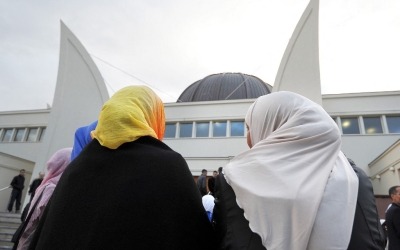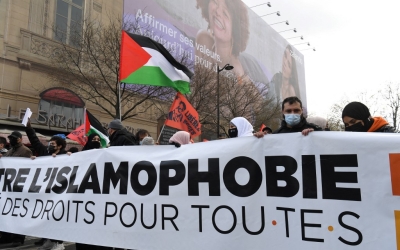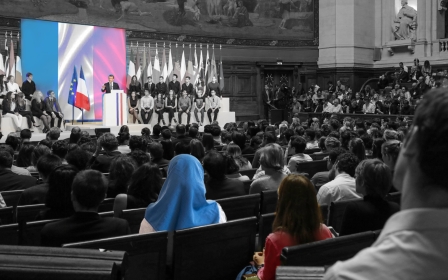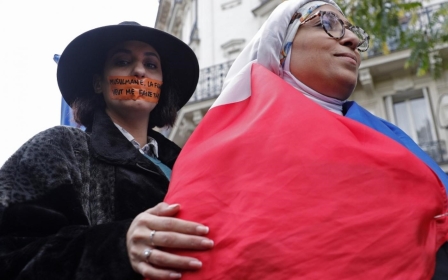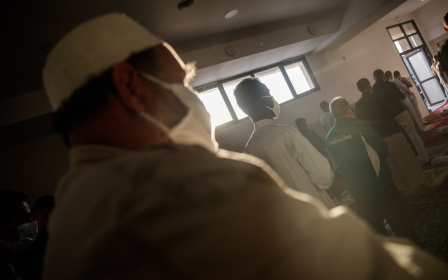France: Government dissolves embattled advisory organisation on secularism
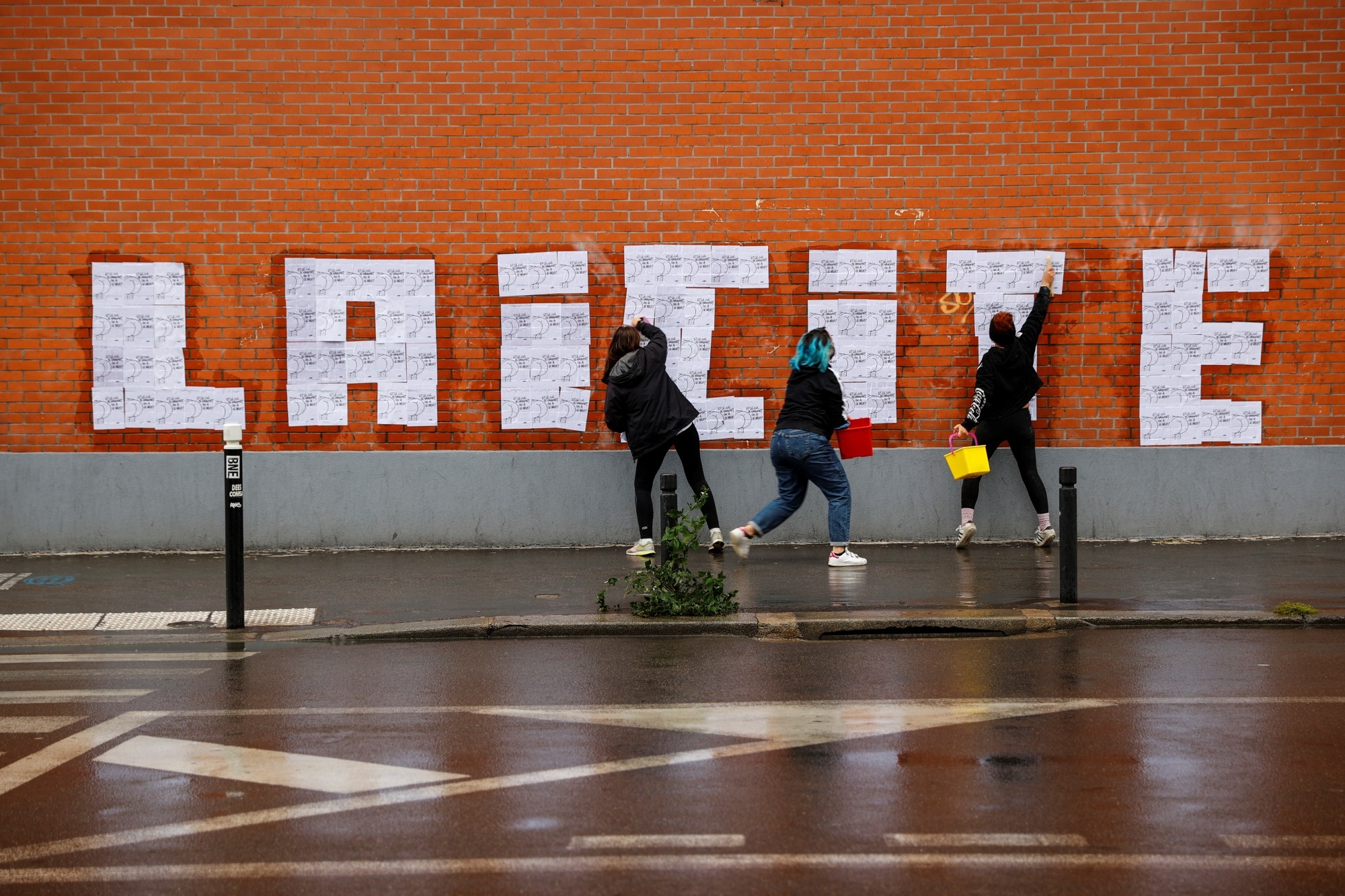
The French government announced on Friday that it was closing down a public secularism watchdog long at odds with right-leaning politicians over diverging interpretations of French secularism in a time of anti-Muslim sentiment in the country.
The Observatory of Laicite was created in 2013 under then-President Francois Hollande and led by Jean-Louis Bianco, a former Socialist Party MP tasked with advising the government and providing training to state employees and non-governmental associations across the country on laicite - the French conception of secularism - as defined under a 1905 law.
Its mandate was most recently renewed in 2017 for a period of five years.
A decree issued by Interior Minister Gerald Darmanin on Friday announced the creation of an “interministerial committee of laicite” presided over by the prime minister and composed of “the ministers most directory concerned”.
“The Observatory of Laicite is removed,” the decree added.
While the first meeting of the new committee is scheduled for 12 July, members of the Observatory will stay on for a period of three months to ensure the transfer of ongoing work.
Observatory in the crosshairs
Laicite is defined by French law as the separation between the state and religious institutions, but increasingly, some political figures and commentators have reinterpreted it as the need to separate religion from the public sphere, with a particular focus on the visible tenets of the Muslim faith.
The Observatory’s general rapporteur, Nicolas Cadene, had reportedly been in the crosshairs of Marlene Schiappa, minister delegate in charge of citizenship, since at least October.
Schiappa, one source told French magazine Le Point at the time, had long been unhappy with Cadene’s public positions denouncing Islamophobia, with one source saying that the rapporteur “seems more preoccupied by the fight against the stigmatisation of Muslims than by the defence of laicite”.
Schiappa first announced the creation of a High Council of Laicite in late March, as French MPs were debating the controversial so-called anti-separatism bill, which has yet to pass into law.
The new interministerial committee will be composed exclusively of ministers, as opposed to the Observatory, which is currently composed of MPs from the majority and the opposition, high-level civil servants, and experts on the issue of secularism.
Some observers and political figures - including members of President Emmanuel Macron’s party, The Republic On the Move (LREM) - have expressed concerns that the new committee would be far more politicised than the Observatory, and more susceptible to pushing interpretations of laicite fitting the government’s aims.
Translation: Dear Nicolas Cadene and Jean-Louis Bianco, thank you for these eight years at the Observatory of Laicite: A work of quality, often with discretion, a testament to your visceral attachment to our laicite. Thank you for your resilience in the face of those who want to sidetrack our republican foundations. See you soon.
Translation: [Removal of the Observatory of Laicite] To turn laicite into a toy of the government in power, tossed between ministers, will allow all sorts of instrumentalisations. This is not the spirit of 1905. These choices will fracture our public life a little more.
A dangerous turn
Speaking to Middle East Eye in April, Cadene expressed his astonishment over plans, now set in stone, to shut down the Observatory.
“All the actors on the ground massively back the Observatory of Laicite. Since the announcement, we've been inundated with support, from teachers, historical associations on laicite, French and international academics, etc…” he said at the time, noting that some 350,000 people had benefitted from training with the organisation.
“I believe this announcement follows a logic of politics, but also I would say of politicking, by compartmentalising laicite to a ministry.
“Laicite should not be a political tool, it should not be ideologically biased,” he added. “Laicite is neither a principle of the right nor the left; it is a transpartisan, republican principle. It is very dangerous to turn laicite into a partisan ideology.”
In the past two decades, a new interpretation of laicite has gained ground in French public and political discourse, advocating a more stringent separation of religion and public spaces, not just state institutions, and interpreting expressions of faith in public as contrary to France's secularist values.
The debate has been central to controversies around Islam in France, as laicite has been used as a justification to push policies targeting Muslims - including the anti-separatism bill, or the creation of a controversial “imam charter” - in the wake of a French schoolteacher’s murder in October.
The Observatory has been outspoken in denouncing certain government initiatives seen as violating existing laws on secularism - including not-yet-passed amendments to the anti-separatism bill calling for mothers wearing the hijab to be barred from chaperoning school trips.
“These amendments are contrary to the (French) Constitution and the European Convention of Human Rights,” Cadene told MEE in April. “These amendments are an escalation that makes no sense, and are sometimes put forward in the name of laicite even though they are directly opposed to laicite.”
The closure of the Observatory comes eight months after the Macron government shut down French Muslim charity BarakaCity and the Collective Against Islamophobia in France (CCIF) over their alleged ties to the "radical Islamist movement" - allegations which both organisations have strongly denied.
Darmanin - who had called BarakaCity and the CCIF “enemies of the republic” - went on to accuse far-right National Rally leader Marine Le Pen in February of being "too soft on Islam".
That same month, Higher Education Minister Frederique Vidal announced on right-wing channel CNews that "Islamo-leftism is corrupting society in its entirety and universities are not immune," before calling for an investigation - since thwarted - into France's university research sector in order to identify "what falls under academic research and what falls under activism and opinion".
Middle East Eye delivers independent and unrivalled coverage and analysis of the Middle East, North Africa and beyond. To learn more about republishing this content and the associated fees, please fill out this form. More about MEE can be found here.


